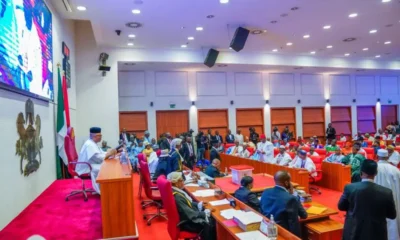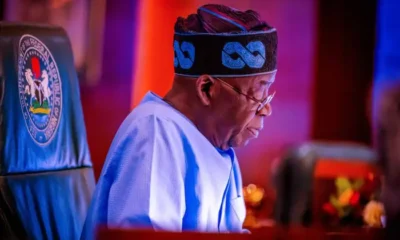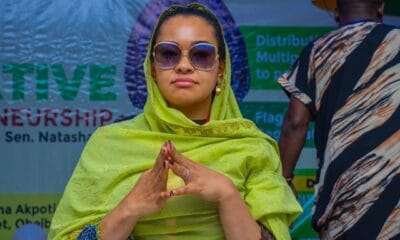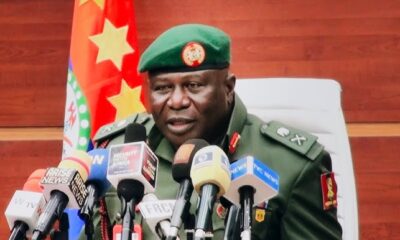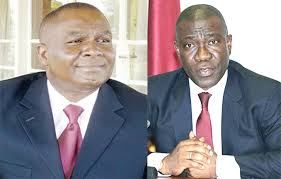Breaking News
Senate Halts Debate on Electoral Act 2025 After Akpabio’s Outburst on 2019 Election
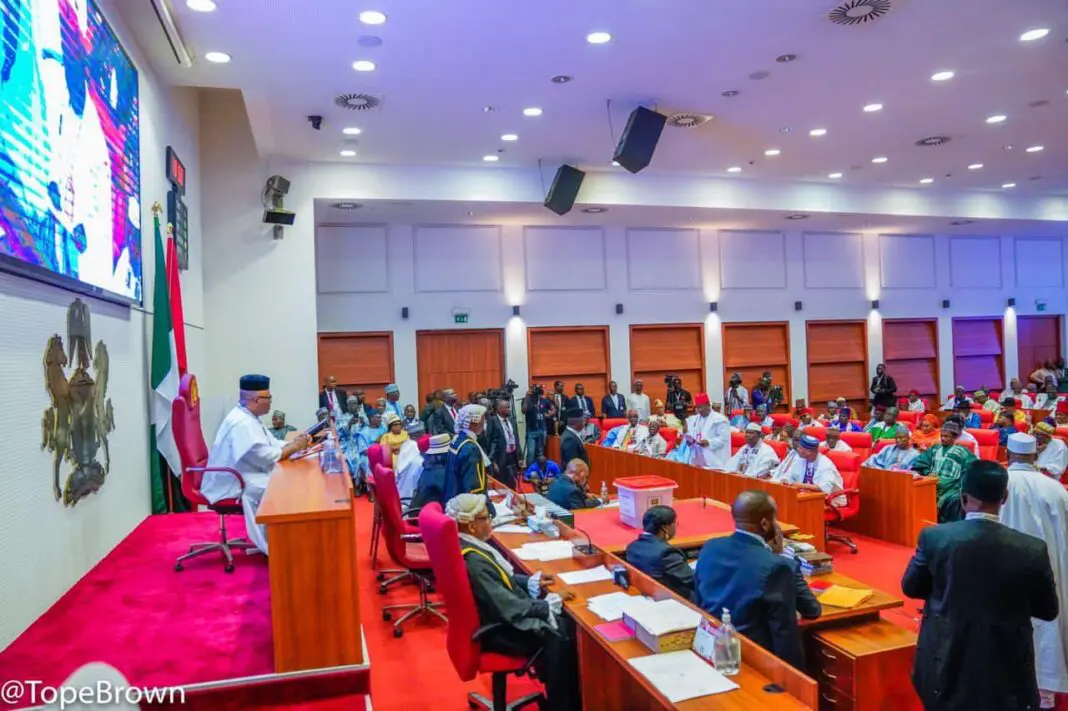
The Senate on Wednesday stepped down debate on the Electoral Act (Amendment) Bill 2025, after heated deliberations and emotional interjections from the President of the Senate, Godswill Akpabio, who revisited what he described as the “injustice” he suffered during the 2019 general elections.
The setback came moments after the Chairman of the Senate Committee on Electoral Matters, Senator Simon Lalong (APC, Plateau South), presented the lead debate on the general principles of the bill titled “A Bill for an Act to Repeal the Electoral Act, No. 13, 2022, and Enact the Electoral Bill, 2025, to Regulate the Conduct of Federal, State, and Area Council Elections in the Federal Capital Territory and for Related Matters (SB. 903).”
Lalong: 2025 Bill Aims at Comprehensive Electoral Overhaul
Introducing the bill, Senator Lalong explained that it was not a mere amendment but a complete repeal and re-enactment of the 2022 Electoral Act designed to deliver a more transparent, inclusive, and credible electoral framework for Nigeria.
“The 2023 general elections tested our democracy in profound ways,” he said.
“While the 2022 Act delivered some landmark innovations, it also exposed deep flaws in our electoral system, delays in the release of funds, disputes over the voter register, conflicting interpretations of result transmission, widespread litigation from party primaries, and weak enforcement of electoral offences.”
He said the proposed legislation was Nigeria’s opportunity to “respond not with patchwork corrections, but with a holistic, future-facing law that restores faith in our elections.”
Lalong outlined key objectives of the proposed reform, including:
- Strengthening INEC’s independence by mandating early release of funds and protecting the tenure of Resident Electoral Commissioners;
- Introducing digital registers of results, QR-code voter IDs, and robust electronic transmission procedures;
- Setting stricter timelines for party primaries and clearer rules for candidate nominations and replacements;
- Imposing tougher penalties for vote-buying and result falsification;
- Reviewing campaign finance ceilings to ensure transparency; and
- Mandating continuous voter registration nationwide.
“This Bill is about more than Election Day,” Lalong continued.
“If we get it right, we will restore public trust, reduce post-election disputes, and empower INEC to function without interference. If we falter, we risk perpetuating a cycle of contested elections, judicial overload, and declining voter confidence.”
Tension as Akpabio Interrupts Debate
Trouble began when Senator Titus Zam (Benue North East) supported Senator Binos Yeroe’s motion that the bill be passed for second reading.
However, Senate President Akpabio interjected, demanding that the sponsor clarify the “nitty-gritty” of the proposed amendments before further action.
Raising the issue, Akpabio asked: “What exactly are the amendments we want to pass for second reading? We must be clear about what we are doing before we move forward.”
He then turned to Lalong, requesting that the chairman of the Electoral Matters Committee explain the substance of the reforms.
Akpabio Recounts 2019 Election Ordeal
In an emotional detour, Akpabio revisited the 2019 general election, where he contested for the Akwa Ibom North-West Senatorial seat, accusing the electoral authorities of “misdirected justice” after the returning officer, Professor Peter Ogban, was jailed.
“What is particularly important to me is what happened during the 2019 elections,” he began.
“I was unfairly treated. The legislation was clear, yet those who were supposed to uphold it acted otherwise. The returning officer, instead of being treated fairly, was turned into a scapegoat.”
Akpabio noted that although the court had ordered the prosecution of officials of the Independent National Electoral Commission (INEC), only the returning officer was punished.
“He was wrongly sentenced to three years in prison. They claimed the professor tried to assist Senator Godswill Akpabio, but if that were true, why were my votes the ones affected?”
He further queried how security agencies allegedly hijacked result sheets to the INEC office, stressing that “something went wrong and justice was misplaced.”
Akpabio also criticised the lengthy campaign timelines in Nigeria’s electoral calendar, arguing that they disrupt governance and reduce productivity among public officials.
“Campaigns run for eight months, and after that, there’s another three-month window before the polls. By the time ministers and governors get back to work, a significant part of the four-year term has been lost,” he lamented.
He urged lawmakers to consider shorter timelines for campaigns, better alignment of election schedules, and mechanisms to prevent political officeholders from losing valuable time to electioneering.
“If we want to fix our electoral system, we must hold the right people accountable and ensure INEC and other institutions do their jobs without bias or manipulation,” Akpabio said.
Senate Suspends Further Debate
Following the heated exchanges, the Senate Leader, Opeyemi Bamidele (APC, Ekiti Central), moved a motion to stand down further consideration of the bill pending a clearer presentation of the proposed amendments.
The motion was seconded by the Minority Leader, Senator Abba Moro (PDP, Benue South), and subsequently adopted.
This temporarily halted the legislative process for the Electoral Act Amendment Bill 2025, which had been slated for second reading.
Public Hearing Proposes November 2026 Elections
Earlier in the week, both chambers of the National Assembly had held a joint public hearing on the bill, where several far-reaching proposals were presented, including a plan to conduct presidential and governorship elections in November 2026 instead of the traditional February or March timeline.
The recommendation is contained in Section 4(7) of the proposed amendment, which states that elections into the offices of President and Governor must be held not later than 185 days before the expiration of tenure.
By this calculation, elections for the 2027 cycle would take place in November 2026, allowing for earlier transitions, resolution of disputes, and smoother handovers before May 29, 2027.
The proposal, which aims to align Nigeria’s election management with international best practices, also includes stricter penalties for vote buying, enhanced digital verification, and mandatory electronic transmission of results across all polling units.
With the bill now suspended, the Senate Committee on Electoral Matters has been directed to refine and clarify the specific amendments being sought and resubmit them for consideration.
The delay marks a temporary pause in Nigeria’s broader effort to overhaul its electoral framework ahead of the 2027 general elections, as lawmakers weigh reforms designed to improve transparency, technology adoption, and public confidence in the process.

